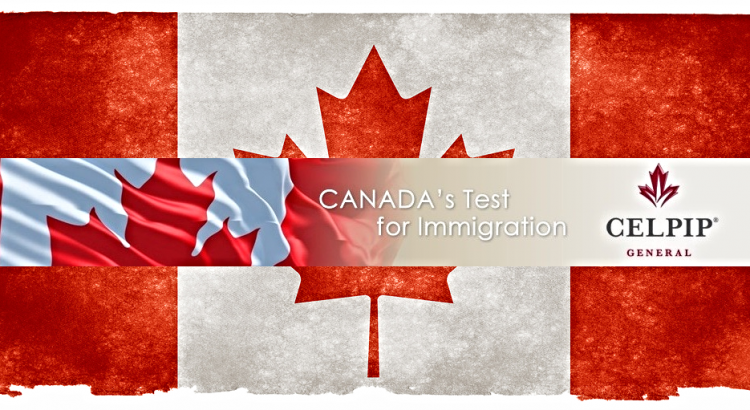The 10 most in-demand jobs in Canada
Current unemployment rate is 5.7% and inflation rate is 2.20%
Which occupation could assure me of a lifelong job security? Which occupations are trending now? These are complex questions. Oftentimes it is hard to find the right answer. We have no idea whether a particular occupation will remain in demand or increase demand in the future. A misstep could destroy the career and may put someone backwards only to switch it at a later stage. This article may help you find the right answer in the context of the Canadian labor market. Here are top ten unmissable jobs with the most potential (medical occupations are in exception):
- Business analysts
Training needed: Minimum bachelor’s degree in business administration with some background of IT work experience
Job outlook: Business dynamics never remain constant and bring challenges all the time, especially when every company is out there to go to any length in competition. All the businesses need to make use of technology at the optimum level so as they can stay ahead of challenges. From gathering details about consumer behavior to any other business analytics they bring in new software and technologies. However, it is a daunting task for mangers to make employees use these new features top-down. Business analysts make sure that how everyone uses such a new fancy piece of software. So somebody who has a knack of doing business analysis with the IT background puts this job in order.
Salary range: $73,000 – $87,000
- Account managers
Training needed: Minimum bachelor’s degree in business administration, commerce, or ecommerce is required. There are various training programs and courses offered by financial organizations and institutes.
Job outlook: Employment in accounting job is considered one of the most recession-proof occupations. Because when you dream of having a startup or shutting down your existing corporation accountants are required to do your number job. An accountant is needed for several jobs including filing corporate taxes and managing company’s finances.
Salary range: $63,000 – $75,000
- Software engineers
Training needed: Minimum bachelor’s degree in computer science, computer systems engineering, software engineering with practical experience for entry-level
Job outlook: It is estimated that this occupation will witness around 25 per cent growth in the decade to come yet. Technology surrounds us all the time and innovators and software application developers are never going to be out of demand. Not only is a solid demand that is on the table, but engineers in this occupation are paid high salaries. The breakthrough technologies and ongoing revolution in mobile device industry cements a stable growth in coming years. So get on the board and build the world of future.
Salary range: $83,000 – $99,000
- Geoscientists
Training needed: A bachelor’s degree in earth science or a related field is usually required with 4 years of work experience working in the same field.
Job outlook: British Columbia and Alberta where the earth excavation for fossil fuels and minerals are in full swings amid protests by some not-for-profit organizations and local people. Professional geoscientists make more than the median salary in some cases. It all depends upon the previous track record of the candidate and his contribution to discovery and business activities. The pay scale could go as much as $300,000 in some cases. The primary job of geoscientist is to help society meet its needs for natural resources.
Salary range: $36,000 – $75,000
- 3D animation professionals
Training needed: A university or college degree in graphic design, commercial art, graphic communications or cartooning is usually required. With the traditional degree, some years of work experience with creativity is prioritized.
Job outlook: if you are driven intrinsically to create something like ‘The Lord of the Rings’ or ‘Avatar’ or a memorable cartoon for next-gen children, then this occupation will test your creativity. Professionals in this industry think out of the box and more than your traditional degree your eccentric and wacko designs get thumbs up.
Salary range: $49,000 – $86,000
- IT project managers
Training needed: Minimum bachelor’s degree in computer science, computer systems engineering, software engineering, business administration or a related field is usually required
Job outlook: IT project managers enjoy high salaries in every part of the world. Job duties of computer geeks encompasses responsibility of leading the team that include software engineers, networking engineers, analysts and other techies through complex IT projects. Waterloo in Ontario province is called a ‘Silicon Valley’ of Canada where you see all types of multinational tech companies.
Salary range: $92,000 – $114,000
- Nurses
Training needed: Registered nurses hold a university, college or other approved registered nursing program.
Job outlook: It is one of the occupations which has never witnessed any slump to date. Registered nurses are in great demand and the same trend seems to continue for the years to come. Registered nurses are driven intrinsically and this occupation requires rich work experience with dedication.
Salary range: $58,000 – $78,000
- Veterinarian doctors
Training needed: With the provincial license, veterinarian practitioners are required to have a four to five-year university degree in veterinary medicine and completion of national certification examinations. Along with these basic academics, practitioners also hold a two-year pre-university study before they can move to a tradition undergrad degree in the same field.
Job outlook: Are you an animal lover who wants to make the world more compassionate? If yes, then there could be no better job for you than this. The good news is the employment opportunity in this sector is expected to grow by 19 per cent until 2026, quite faster than the average for all occupations. Go help your loved ones!
Salary range: $70,000 – $100,000
- Finance managers
Training needed: Minimum bachelor’s degree in business administration, economics, commerce or a related field is required. Some positions may require a master’s degree with finance concentration.
Job outlook: Canadian economy is one of the stable economies in the world. Its economic health performance was tested during the 2008 financial meltdown. It had a minor denting, but bounced back in line with other growing economies. Currently, the economic outlook is stable and expected to do well in coming years. So are businesses in Canada! There are openings for this role in all sized corporations. If you are passionate about numbers and overseeing the company’s financial health, get on the board and take your company ahead of others.
Salary range: $75,000 – $110,000
- Engineering project manager
Training needed: Minimum bachelor’s degree in engineering with a master degree in business management or related vendor courses
Job outlook: The government of Canada is pumping money into infrastructure projects and housing sector to meet the existing demand and create job opportunities for their people. Their belief is simple: infrastructure propels the growth. Engineering project managers’ job duties include building stuff and managing people. Furthermore, project management consultancy (PMC) and engineering procurement & construction (EPC) are relatively new business practices which have given remarkable returns to those companies that adopt this system. Project efficiency and productivity increase with curbing in slippages to some extent. This has called for a fresh demand for such engineering project managers.
Salary range: $74,000 – $92,000








